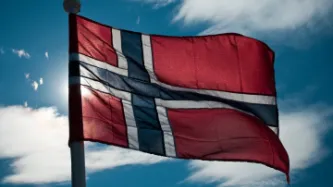Search
Content type: Examples
The algorithm and mathematical model used to predict students’ grades by the International Baccalaureate programme, which was forced to cancel exams because of the pandemic, incorporated three elements: coursework, teachers’ predictions of their students’ exam grades, and “school context”, which was based on historical teacher grade predictions (which universities use for provisional acceptances) and the school’s historical performance on each subject’s coursework. The result was to penalise…
Content type: Examples
The algorithm and mathematical model used to predict students’ grades by the International Baccalaureate programme, which was forced to cancel exams because of the pandemic, incorporated three elements: coursework, teachers’ predictions of their students’ exam grades, and “school context”, which was based on historical teacher grade predictions (which universities use for provisional acceptances) and the school’s historical performance on each subject’s coursework. The result was to penalise…
Content type: Examples
Governments in Norway, Britain, Qatar, and India, among others, have had to either drop or remediate the contact tracing apps they’ve released to help combat the coronavirus due to the rush in which they were released. Many had security flaws that risked exposing user data; others pose privacy and security risks due to the amount of data they collect. While the apps may be helpful in countries like South Korea, where the medical infrastructure exists to do mass testing and isolation, digital…
Content type: Examples
After the data protection authority ruled that Norway’s Smittestopp app disproportionately intruded on users’ privacy by collecting location data without demonstrating it was strictly necessary and by failing to allow users to separately grant permission for contact tracing and for using the data for future research, the country’s health authorities were forced to delete all the user data it had gathered since the app’s mid-April launch and suspend further use. Experts who were asked to review…
Content type: Examples
In its final report, the expert group appointed by the Norwegian Ministry of Health and Care Services to assess the security and privacy of the country's COVID-19 contact tracing app, "Smittestopp", concluded that the app handles neither responsibly. The group recommended removing all data once it's not needed (15 to 16 days for location data, for example), implement differential privacy, open the source code wherever possible, and regularly reevaluate the app against its two purposes: contact…
Content type: Examples
The Norwegian contact tracing app, Infection Stop, relies on a centralised database to store users' GPS locations for 30 days, like its Chinese counterpart. Sumula, the company that developed the app, claims is necessary because of technical limitations in Apple's smartphone operating system iOS. Simula has rejected using Bluetooth, like Singapore's TraceTogether, because to work on Apple's iPhones the tracker app would have to be in the forefront in order to be able to use Bluetooth to send,…
Content type: Examples
Norway's state research and development company, Simula Research Laboratory, in collaboration with the Institute of Public Health, is working to develop technical solutions to help combat the COVID-19 pandemic. Code discovered on Github and later removed included examples of how the researchers could detect people who had been within 50 meters of each other for at least one minute, based on geolocation data obtained from network operators Telenor and Telia, among others. The data is normally…
Content type: Examples
Together with Norwegian company Simula the Norwegian Institute of Public Health is developping a voluntary app to track users geolocation and slow the spread of Covid-19. Running in the background, the app will collect GPS and Bluetooth location data and store them on a server for 30 days. If a user is diagnosed with the virus, its location data can be user to trace all the phones that have been in close contact with the person. Authorities will use this data to send an SMS only to those phones…
Content type: News & Analysis
An astonishing 13-page investigation by Osman Kibar at Dagens Næringsliv has revealed that Norway has invested over $2 billion in 15 companies that manufacture and sell surveillance technologies - and that the government has no plans to divest investments in companies that are complicit in human rights abuses abroad.
The Norwegian national pension fund (commonly referred to as the "oil fund") is the world's largest sovereign wealth fund. The author of the Dagens Næringsliv…
